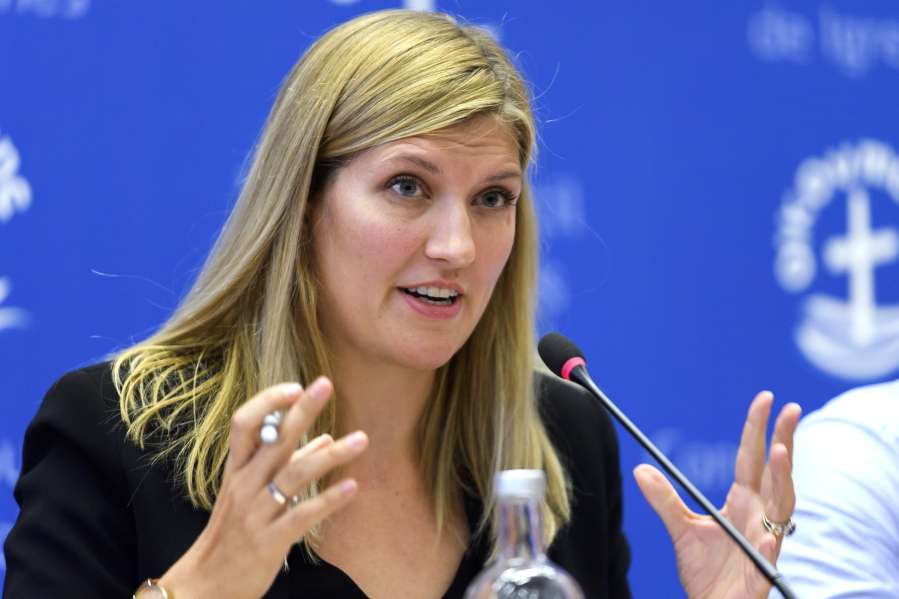OSLO, Norway — The International Campaign to Abolish Nuclear Weapons won the Nobel Peace Prize on Friday, a forceful show of support for a grass-roots effort that seeks to pressure the world’s nuclear powers to give up the weapons that could destroy the planet.
The choice of the coalition of disarmament activists put the Nobel committee again at the forefront of geopolitics at a time when fears are rising over North Korea’s nuclear and missile program and the invective it has drawn from U.S. President Donald Trump.
The committee cited the tiny, Geneva-based ICAN for its work that led to the Treaty on the Prohibition of Nuclear Weapons that was reached in July at the United Nations.
The group “has been a driving force in prevailing upon the world’s nations to pledge to cooperate … in efforts to stigmatize, prohibit and eliminate nuclear weapons,” Norwegian Nobel Committee chairwoman Berit Reiss-Andersen said in the announcement.
More than 120 countries approved the treaty over opposition from nuclear-armed countries and their allies. In a statement issued after the Nobel was announced, the U.S. reiterated its position that the treaty “will not result in the elimination of a single nuclear weapon.”
The treaty requires all ratifying countries “never under any circumstances to develop, test, produce, manufacture, otherwise acquire, possess or stockpile nuclear weapons or other nuclear explosive devices.” It also bans any transfer or use of nuclear weapons or nuclear explosive devices — and the threat to use such weapons.
The nuclear powers oppose the treaty, which goes well beyond existing nonproliferation agreements, arguing that they alone should have the weapons in order to support stability in the world.
The U.S., Britain and France said the prohibition wouldn’t work and would end up disarming their nations while emboldening what U.S. Ambassador Nikki Haley called “bad actors.” They instead suggest strengthening the nonproliferation treaty, which they say has made a significant dent in atomic arsenals.
ICAN, a coalition of 468 nongovernmental groups from over 100 countries, says that argument is outdated.
“This prize is really a tribute to the tireless efforts of many millions of campaigners and concerned citizens worldwide who have, ever since the dawn of the Atomic Age, loudly protested nuclear weapons, insisting that they can serve no legitimate purpose and must be forever banished from the face of our Earth,” ICAN Executive Director Beatrice Fihn said.
The prize is likely to give new momentum to ICAN and its allies in the coming months as the group tries to achieve ratification of the treaty by 50 nations.



